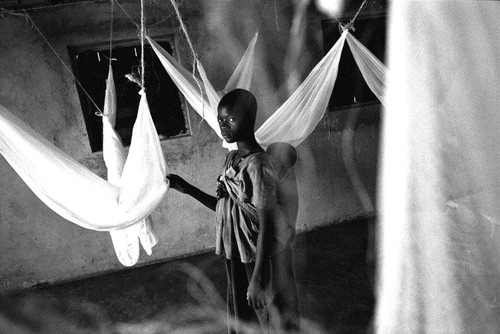The ICPD Programme of Action was a watershed. In retrospect, and with the prevailing political situation in the world, it is even more astonishing than it seemed then that consensus was actually reached over the issues discussed in Cairo. Over the last decades there has been increasing awareness of the societal and political implications of what was earlier seen as belonging to the private sphere, and only there. Equality in sexual relations is now seen as the cornerstone of democracy, and freedom from violence and coercion in our intimate lives and our relationships is a basic theme in the ICPD Programme of Action.
Female genital mutilation is another example where the perception of what is public and what is private has changed. In 1958, when it was for the first time suggested that the World Health Organization should take up the issue, many felt that it was too culturally sensitive and too private to warrant public discussion and action. It has taken decades to open up the issue, and the ICPD Programme of Action has clear and concise statements on female genital mutilation. Sexually transmitted infections are another issue with taboo attached, and it is a tragic paradox that it had to take the global disaster of HIV/AIDS to, at least partly, crack that taboo. Many more HIV-positive people can now state publicly that they are so. This does not underestimate or devalue their courage, or the anger and prejudice that they are still met with. Yet I am astonished that it is possible at all. Abortion and adolescent sexual health are other issues that have been taboos. Yet today it is possible to say, at least in audiences that are supportive of sexual and reproductive health: “I had an abortion when I was 17”. It is also possible to say “I am gay” or even (but apparently harder) “I am bisexual”.
And yet these “confessions”, or rather statements, make me increasingly uneasy. As long as the “openness” does not include the type of experience that constitutes my own background, namely that of long-term childhood sexual abuse, I feel that my experience becomes even more unspeakable and disgusting to other people. Is it really so much worse than the taboos that we do now seem to be able to mention and deal with?
Or does it have to do with ambiguity? You cannot have “a dash of an abortion”, nobody is “a bit HIV positive” and very few state that they are “slightly gay”. But there are degrees of being abused. A few times, when I have dared to tell friends about my experience of sexual abuse, I have been met with: “I know exactly what you have gone through, I once experienced being fondled in a queue, it is so scary”, or “Oh yes, know what? I saw a man exposing himself, it was so disgusting, so I can really sympathise”. I am not defending such acts, and it is quite evident that the experience can be overwhelming, but it illustrates that there are degrees of abuse. Then there are others who have very limited knowledge, to the extent that they actually believe such things are “made up”. The reaction “Oh, yes, I do believe you, because it is true, isn't it? Or?” is not easy to handle either.
I fear that as long as those of us who have had this experience as an important part of who we are shun away from openness, the taboo will remain. It just feels so hard to raise it. There may be other taboos that are still as hidden and untouched as well. What do we do with them?
In the preface to her book The Second Sex, Simone de Beauvoir wrote the famous sentence: “I am a woman.” With this, she not only states an obvious fact, but also positions herself in relation to what she discusses in the book. It gives her legitimacy. Feminism has increased awareness of the importance of subjectivity and objectivity. I am not sure if positioning oneself is necessary as often as we tend to think it is. But sometimes it is, as it has to do with honesty and scientific decency. Being gay can be relevant, as it has to do with how one looks at oneself and relates to others, not only sexually but in many other ways as well.
Similarly, the experience of childhood sexual abuse has implications for how we see ourselves, how we relate to our own bodies and to others, in much wider terms than sexually, and to how we understand what we read and how we interpret what we hear and see. It therefore may be relevant for positioning. But it seems to remain a “high-level” taboo. While other taboos are cracked, or at least partially, leaving some types of experience untouchable can become an affirmation that they are too terrible to talk about. It also implies that those of us who have these experiences, as part of who we are, cannot even consider “positioning” ourselves when it is relevant.
The ICPD Programme of Action emphasises the importance of openness in relation to sexuality. It is also very specific about sexual violence:
“Countries should take full measures to eliminate all forms of exploitation, abuse, harassment and violence against women, adolescents and children.” (Paragraph 4.9)
At the tenth anniversary of the ICPD, can we hope that the time has come for cracking taboos related to these types of violence? They have been so influential for millions of women around the globe, and are central to our lives in terms of how we see ourselves and how we experience the world around us.
